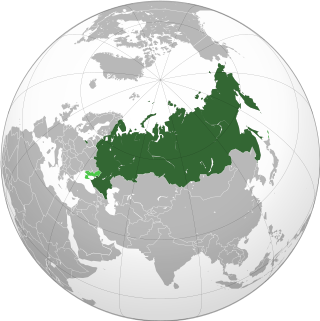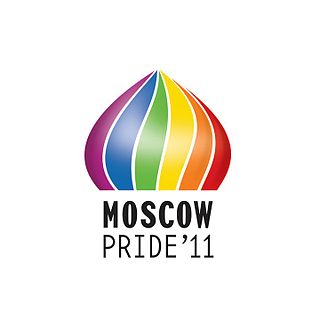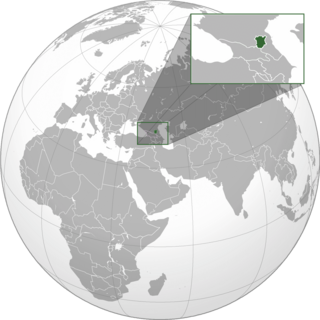Dudgeon v United Kingdom (1981) was a European Court of Human Rights (ECtHR) case, which held that Section 11 of the Criminal Law Amendment Act 1885, which criminalised male homosexual acts in England, Wales and Northern Ireland, breached the defendant's rights under Article 8 of the European Convention on Human Rights.

Lesbian, gay, bisexual, and transgender (LGBT) people in Russia face severe challenges not experienced by non-LGBT residents. Although sexual activity between consenting adults of the same sex is legal, homosexuality is disapproved of by most of the population and pro-LGBT advocacy groups are deemed "extremist" and banned. It is illegal for individuals to "promote homosexuality" and same-sex couples and households headed by same-sex couples are ineligible for the legal protections available to opposite-sex couples. Russia provides no anti-discrimination protections for LGBT people and does not have a designation for hate crimes based on sexual orientation and gender identity. Transgender people are not allowed to change their legal gender and all gender-affirming care is banned. There are currently no laws prohibiting discrimination based on gender identity or expression, and recent laws could be used to discriminate against transgender residents.

Lesbian, gay, bisexual and transgender (LGBT) people in Georgia face significant challenges not experienced by non-LGBT residents. However, Georgia is one of the few post-Soviet states that directly prohibits discrimination against all LGBT people in legislation, labor-related or otherwise. Since 2012, Georgian law has considered crimes committed on the grounds of one's sexual orientation or gender identity an aggravating factor in prosecution. The legislative ban on discrimination has been enacted as a part of the Government efforts to bring the country closer to the European Union and make the country's human rights record in line with the demands of Georgia's European and Euro-Atlantic integration.

Lesbian, gay, bisexual, and transgender (LGBT) people in Moldova face legal and social challenges and discrimination not experienced by non-LGBTQ residents. Households headed by same-sex couples are not eligible for the same rights and benefits as households headed by opposite-sex couples. Same-sex unions are not recognized in the country, so consequently same-sex couples have little to no legal protection. Nevertheless, Moldova bans discrimination based on sexual orientation in the workplace, and same-sex sexual activity has been legal since 1995.
The Church of Scientology Moscow v Russia [2007] ECHR 258 is a European Court of Human Rights case, concerning Article 11 of the convention. In the case the European Court of Human Rights in Strasbourg condemned Moscow City Government's refusal to consider the Church of Scientology of Moscow for registration as a religious organisation, and as a result found that Russia had violated the rights of the Church of Scientology under Articles 11 when "read in the light of Article 9". Specifically, the Court determined that, in denying consideration of registration to the Church of Scientology of Moscow, the Moscow authorities "did not act in good faith and neglected their duty of neutrality and impartiality vis-à-vis the applicant's religious community". The Court also awarded the Church €10,000 in respect of non-pecuniary damage and €15,000 for costs and expenses.
Bączkowski and Others v. Poland was a European Court of Human Rights case which ruled unanimously that the banning of an LGBT pride parade in Warsaw, locally known as the Parada Równości, in 2005 was in violation of Articles 11, 13 and 14 of the European Convention on Human Rights.

Moscow Pride is a demonstration of lesbians, gays, bisexuals, and transgender people (LGBT). It was intended to take place in May annually since 2006 in the Russian capital Moscow, but has been regularly banned by Moscow City Hall, headed by Mayor Yuri Luzhkov until 2010. The demonstrations in 2006, 2007, and 2008 were all accompanied by homophobic attacks, which was avoided in 2009 by moving the site of the demonstration at the last minute. The organizers of all of the demonstrations were Nikolai Alekseev and the Russian LGBT Human Rights Project Gayrussia.ru. In June 2012, Moscow courts enacted a hundred-year ban on gay pride parades. The European Court of Human Rights has repeatedly ruled that such bans violate freedom of assembly guaranteed by the European Convention of Human Rights.

Nikolay Alexandrovich Alexeyev is a Russian LGBT rights activist, lawyer and journalist.
Freedom of assembly in Russia is granted by Article 31 of the Constitution adopted in 1993, where it states that citizens of the Russian Federation shall have the right to gather peacefully, without weapons, and to hold meetings, rallies, demonstrations, marches and pickets. In practice, the right to freedom of assembly is restricted by Russian authorities. According to a Russian law introduced in 2014, a fine or detention of up to 15 days may be given for holding a demonstration without the permission of authorities and prison sentences of up to five years may be given for three breaches. Single-person pickets have resulted in fines and a three-year prison sentence.
Article 8 of the European Convention on Human Rights provides a right to respect for one's "private and family life, his home and his correspondence", subject to certain restrictions that are "in accordance with law" and "necessary in a democratic society". The European Convention on Human Rights (ECHR) is an international treaty to protect human rights and fundamental freedoms in Europe.

Lesbian, gay, bisexual, and transgender (LGBT) persons in TRNC (Turkish Republic of Northern Cyprus) face legal challenges not experienced by non-LGBT residents. Same-sex sexual activity has been legal in Northern Cyprus since 7 February 2014. Previous laws allowed three years prison sentences, according to Articles 171 and 173 of its criminal code. Female homosexuality was not criminalised. Arrests for homosexuality have occurred as recently as 2011.
Russia does not recognize same-sex marriage or civil unions for same-sex couples. Since 2020, the Russian Constitution has explicitly outlawed same-sex marriage. Statutory Russian laws also contain provisions forbidding same-sex marriages.

The rights of lesbian, gay, bisexual and transgender people in Chechnya have long been a cause of concern for human rights organizations such as Amnesty International and Human Rights Watch. As a member of the Russian Federation, Russia's LGBT laws formally apply. De facto, there are no protections for LGBT citizens, and the Chechen authorities allegedly encourage the killing of people suspected of homosexuality by their families.

Gayrussia.ru is an LGBT rights organization based in Moscow, Russia. It has organised numerous public actions in Russia, the most famous being Moscow Pride and Slavic Pride. It also sponsored the documentary Moscow Pride '06. In November 2008, Project GayRussia.Ru extended its advocacy work into Belarus where it launched the Slavic Gay Pride movement with its local partner Gaybelarus.by.
Smith and Grady v UK (1999) 29 EHRR 493 was a notable decision of the European Court of Human Rights that unanimously found that the investigation into and subsequent discharge of personnel from HM Forces on the basis they were homosexual was a breach of their right to a private life under Article 8 of the European Convention on Human Rights. The decision, which caused widespread controversy at the time led the UK to adopt a revised sexual-orientation-free Armed Forces Code of Social Conduct in January 2000. In UK law the decision is notable because the applicants' case had previously been dismissed in both the High Court and Court of Appeal, who had found that the authorities' actions had not violated the principles of legality including Wednesbury unreasonableness, thus highlighting the difference in approach of the European Court of Human Rights and the domestic courts.

The history of lesbian, gay, bisexual and transgender people (LGBT) in Russia and its historical antecedents has largely been influenced by the political leanings of its rulers. Medieval Catholic-Protestant Europe had the largest influence on Russian attitude towards homosexuality. Russian LGBT history was influenced by the ambivalent attitude of the Russian Orthodox religiosity regarding sexuality.
Article 18 of the European Convention on Human Rights (ECHR) states:
The restrictions permitted under this Convention to the said rights and freedoms shall not be applied for any purpose other than those for which they have been prescribed.

For the Purpose of Protecting Children from Information Advocating a Denial of Traditional Family Values, commonly known as the Russian anti-LGBT law or as the Russian anti-gay law, is a law of Russia. It was unanimously passed by the State Duma on 11 June 2013, unanimously passed by the Federation Council on 27 June 2013, and signed into law by President Vladimir Putin on 30 June 2013.
Nikolaj Viktorovitsj Bajev or Nikolay Bayev is a Russian LGBT activist and journalist.
Bayev and Others v. Russia was a case brought to the European Court of Human Rights by three Russian activists—Nikolay Bayev, Aleksei Aleksandrovich Kiselev, and Nikolay Alekseyev—alleging that the Russian gay propaganda law infringed on their freedom of expression guaranteed by Article 10 of the European Convention on Human Rights. On 20 June 2017, the court ruled that the applicants' freedom of expression had been compromised. The only dissent was from Dmitry Dedov, the judge elected with respect to Russia.










